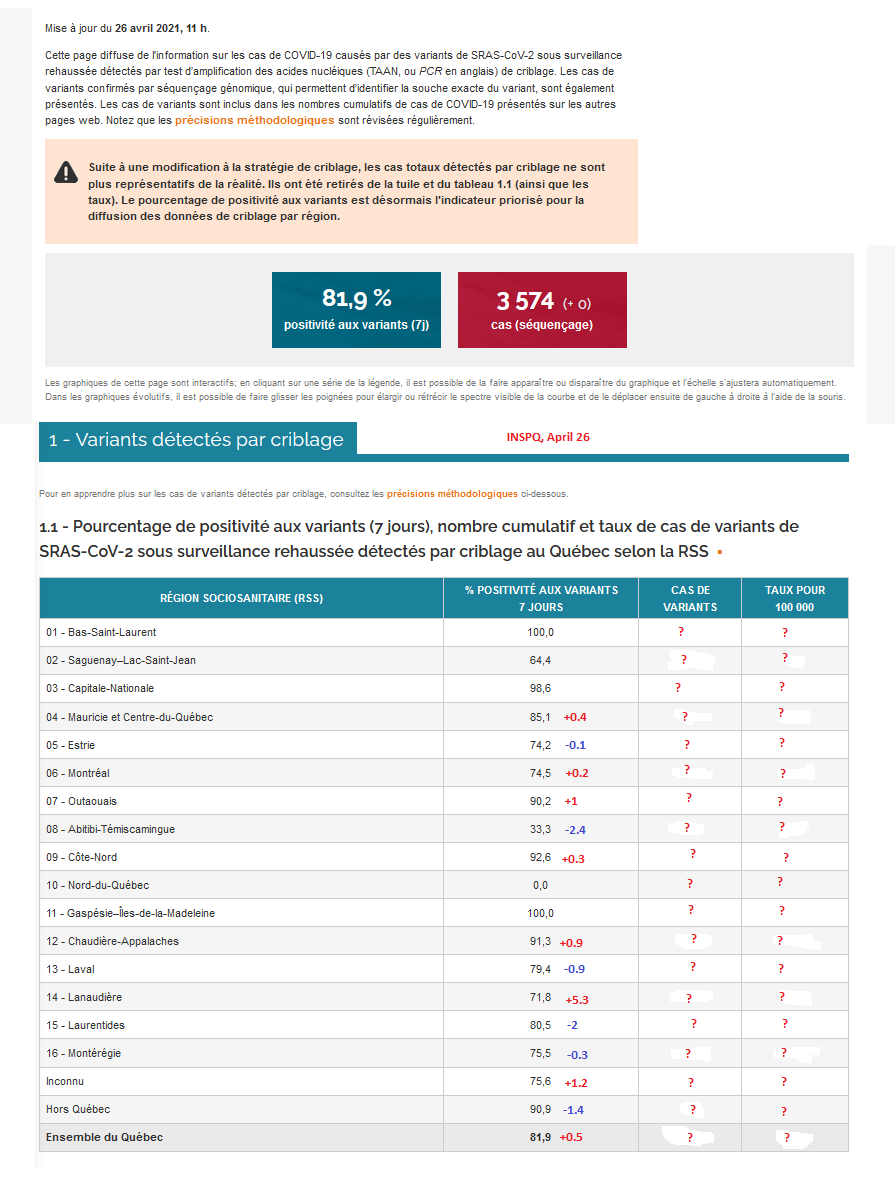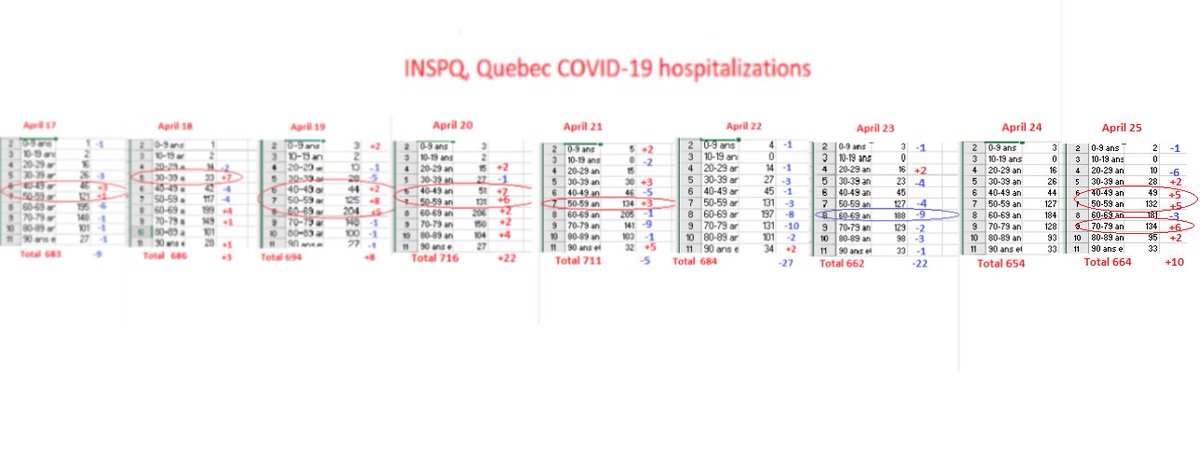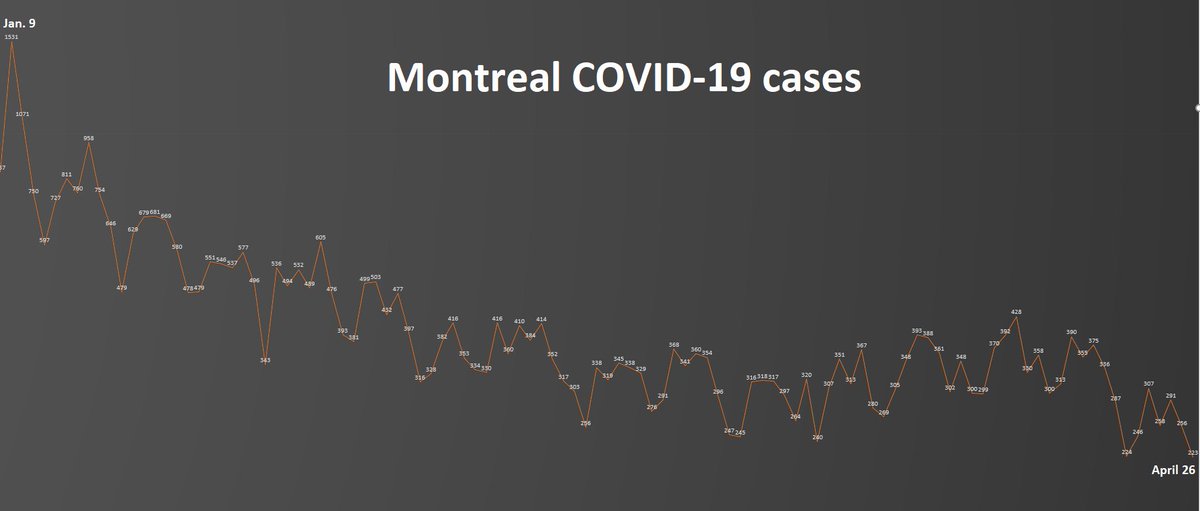1) Quebec’s health institute has discontinued publishing daily data on the total number of screened variant #COVID19 cases. Instead, it’s now reporting only seven-day positivity rates. In this thread, I will explain why this is problematic for the public.
2) “Following a modification to the screening strategy, the total cases detected by screening are no longer representative of reality,” the institute explained, alluding to a decision last week to cut variant screening in half in the Capitale-Nationale and other hot-spot regions.
3) The chart below by the Institut nationale de santé publique du Québec (INSPQ) used to feature three columns of data on variant cases, including a regional breakdown. The INSPQ is now reporting one column showing rising or declining positivity rates of screened #COVID samples.
4) The INSPQ is still continuing to sequence variant #COVID19 samples to determine their genetic lineage, whether strains are B.1.1.7 or P.1, for example. The INSPQ will likely post updates on sequenced cases, including a regional breakdown of such cases.
5) However, the public will be deprived of the daily data in that first step of the process, known in French as “criblage,” or screening. In contrast, Public Health Ontario continues to provide that data on a daily basis by region.
6) I interviewed three experts on the INSPQ’s decision, and none found fault with it, given that the variants are presumed to now be predominant all over Quebec. Why report variant case numbers if nearly all #COVID19 cases are variants in the province?
7) Nonetheless, as I noted previously, Ontario has not discontinued posting numbers of screened variant cases. This is an issue of transparency in a fast-changing #pandemic. We also don’t know precisely how many #COVID19 cases are being sequenced.
8) Meanwhile, Quebec on Monday reported a mixed picture in the #pandemic& #39;s third wave: an uptick in #COVID19 hospitalizations and outbreaks, but a drop below the threshold of one thousand cases for the first time since March 29.
9) The total number of #COVID19 hospitalizations increased by 10 to 664. Intensive-care stays inched up by two to 167. Most of those increases occurred in Montreal, not the regions, and were observed in people in their 40s, 50s and 70s. Please see the chart below.
10) Amid slightly lower weekend testing, #COVID19 cases dipped to a reported 223 on Monday in Montreal. The city’s seven-day rolling average is 13.51 cases per 100,000 residents, down from 14.5 four weeks earlier. Please take a look at the chart below.
11) Faced with a shrinking supply of vaccines, nearly 42,000 #COVID19 shots were administered on Sunday in Quebec. In Montreal, 35.86% of the population has been partially vaccinated, with more shipments expected this week. End of thread. Please limit your social contacts.

 Read on Twitter
Read on Twitter





